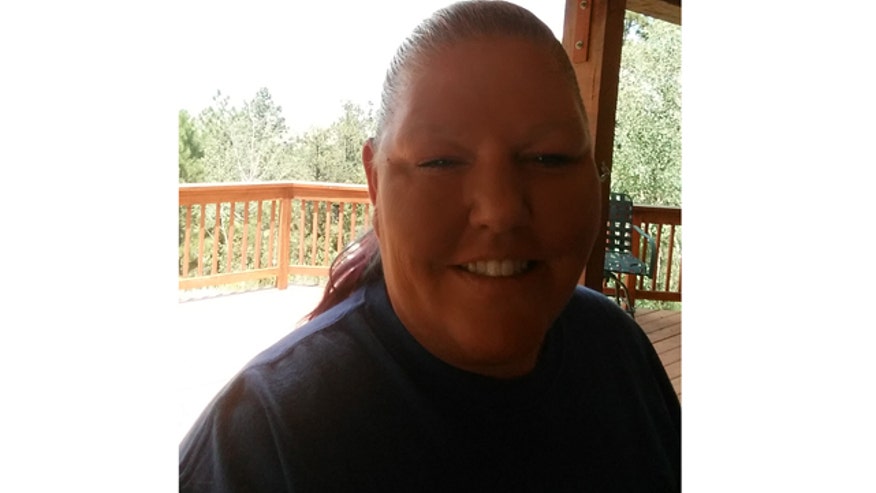Colorado business owner fights back after falling victim to 'caller ID spoofing'

Colorado business owner fights back after falling victim to 'caller ID spoofing'

Stayc LaFern, a victim of "caller ID spoofing," is pictured here outside her Colorado Springs two truck business.
When Stayc Lafean launched a small towing company last month, spending $5,000 to print her new business phone number on trucks and advertisements, the Colorado woman never imagined she would fall victim to "caller ID spoofing" -- a scam in which virtually untraceable parties use someone else's number to disguise the identity of their own and inundate cell phones and land lines with relentless telemarketing robo-calls.
While federal law prohibits caller ID spoofing "for the purposes of defrauding or otherwise causing harm," so-called non-harmful spoofing isn't necessarily illegal.
In Lafean's case, the phone number for her Colorado Springs towing company is being used as a front for a company claiming to sell time-shares and robo-calling people all over the U.S. and beyond.
The problem began on Monday when Lafean said she received 275 phone calls within six hours "from people who had my number on their caller ID."
"This company put my new number into some auto-dialing system," said Lafean, who filed a formal complaint with the Federal Trade Commission, claiming her business is suffering because people are "constantly" calling her number -- in most cases angry about the robo-calls -- and potential customers are unable to get through.
"It's as simple as picking the number out of the air."- Robert Siciliano, identify-theft expert
A Canadian woman called Lafean and said a company claiming to handle time-shares wanted information from her on a time-share she had purchased -- and that it was Lafean's number that appeared on her caller ID.
Beginning at 3 a.m. on Friday, Lafean said she had received 201 calls by 9:45 a.m.
"I can't keep getting yelled at by all these people for something I have no control over," she told FoxNews.com. "I don't want people to get scammed."
"They have no idea who's doing it it's untraceable," added Lafean. "What if they get a hold of some vulnerable old couple? They could lose all their money and personal information."
Under the federal Truth in Caller ID Act , signed into law in 2010, it's a crime to use a fake number to commit fraud or cause harm, such as trying to dupe individuals into giving out their bank account information or Social Security number.
"Caller ID spoofing for malicious purposes is illegal," Mark Wigfield, an FCC spokesman, told FoxNews.com Friday.Asked for a scenario in which changing the number displayed on caller ID might be merited, he cited a theoretical case of a victim of domestic abuse calling from a shelter and trying to disguise his or her location.
But the courts deem "nonharmful spoofing" legal -- and there are dozens of companies who lawfully provide the service of connecting a random number, such as Lafean's, to a party seeking to use it as a "nonharmful" way of reaching households for telemarketing.
"These are companies trying to evade detection," said identify-theft expert Robert Siciliano, who works with McAfee. "They're obviously making this woman's life a living hell."
The process of setting up a number to front as one's own is relatively easy, according to Siciliano.
"It's as simple as picking the number out of the air," he told FoxNews.com. "Then these companies set up their systems to display that number as the caller ID."
"And there are now companies out there whose job it is to set this up. If you Google 'caller ID spoofing,' you'll find a half dozen numbers providing this service," he said.
Lafean claims that when she notified the FCC, she was told, "this is not illegal and it's very hard to track." She said she also contacted her phone carrier, but received no help.
"My hands are tied," she said. "If the government can't fix it, what do I do?"
In an e-mail sent to FoxNews.com, Wigfield declined to rule on Lefean's case, saying, "It is impossible for us to make a judgement about whether a specific situation violates the law without doing an investigation."
"When questionable matters come to our attention either through complaints or otherwise we investigate and make a determination based on the facts and the law and the specific situation. Absent that, I can't speculate," he wrote.
While Siciliano sympathizes with victims of caller ID spoofing, he said Lafean and others face an uphill battle in seeking justice.
"Unless she's got a single government agency that takes an interest in her plight and begins to work on her behalf to connect technology to the phone lines, she's not going to get anywhere."
"You could likely make a case that this is illegal but so is dubbing a VHS tape," he said.
Lafean acknowledges she can change her phone number, but not without a major financial setback for her small two truck company. Roughly $5,000 has already been spent on printing the number on trucks, business cards, employee t-shirts and other advertisements, she said.
Still, Siciliano said, that is Lafean's best option.
"We all suffer setbacks in our business for one reason or another these things happen," he said. "There may not be any justice when its all said and done but her hands are not tied. She can change her number. The damage is done."


People can be so greedy, its disgusting !!